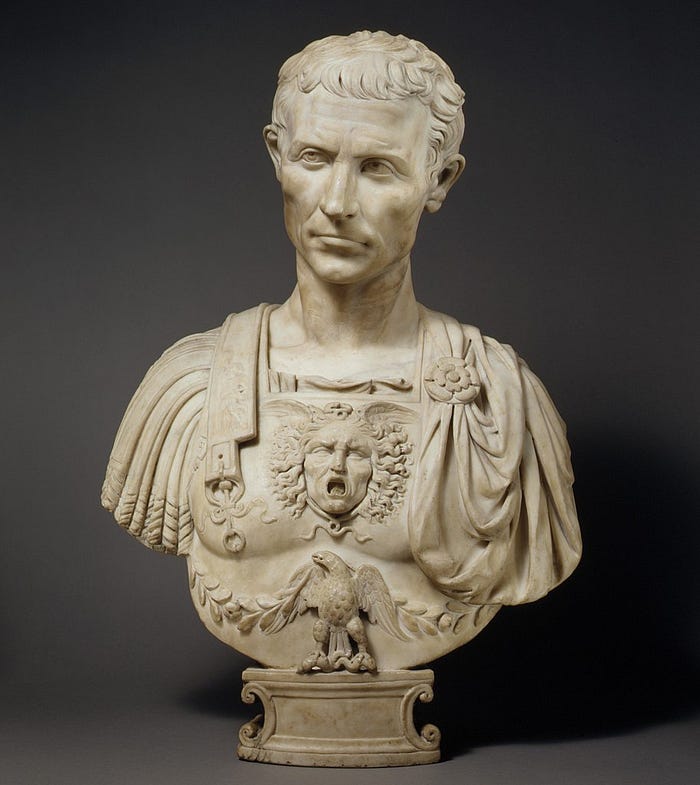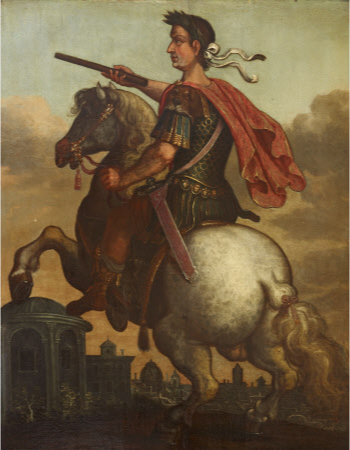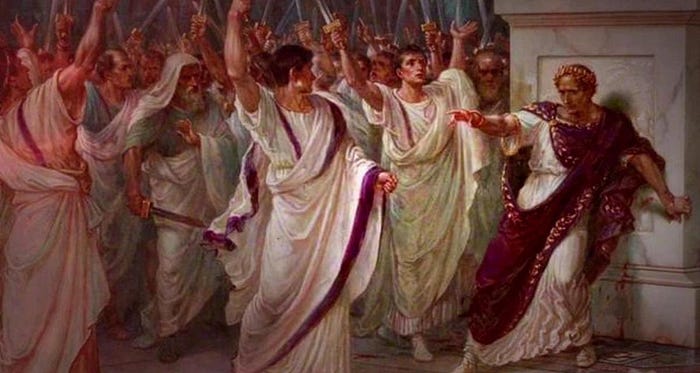Julius Caesar was a legendary figure in ancient Rome, whose life and legacy have had a profound impact on history. Born in 100 BC, Caesar was a military commander, politician, and dictator who played a pivotal role in the transformation of the Roman Republic into the Roman Empire.

Understanding the life and legacy of Julius Caesar is important for understanding the evolution of Western civilization. Caesar’s impact on history can be felt in everything from modern politics to literature, art, and culture.
Early Life and Rise to Power
Julius Caesar was born in 100 BC into a noble family that claimed descent from the goddess Venus. His father, also named Gaius Julius Caesar, was a senator and governor who died when Caesar was just 16 years old. Following his father’s death, Caesar became the head of his family and assumed the role of pontifex maximus, or chief priest of Rome.
Caesar’s early political career began when he was elected as a military tribune at the age of 22. He quickly rose through the ranks of the Roman political system, serving as quaestor, aedile, and praetor before being elected consul in 59 BC. During this time, Caesar also distinguished himself as a military commander, leading successful campaigns in Spain and Gaul.
In 60 BC, Caesar formed an alliance with two other prominent Roman politicians, Pompey and Crassus, to create the First Triumvirate. This powerful political alliance allowed Caesar to consolidate his power and influence in Rome, paving the way for his eventual rise to absolute power.
By 49 BC, tensions between Caesar and the Roman Senate had reached a boiling point, and Caesar famously crossed the Rubicon River with his army, signaling his intention to march on Rome and establish a dictatorship. With the support of his army and the people of Rome, Caesar was declared dictator for life in 44 BC. However, his reign was cut short by assassination just one year later, leaving a lasting impact on Roman politics and the course of Western history.
Caesar’s Military Campaigns
Julius Caesar was not only a skilled politician but also a brilliant military commander. He led many successful military campaigns throughout his career, cementing his reputation as one of the greatest generals of all time.
Caesar’s most famous military campaign was his conquest of Gaul, a region that encompasses modern-day France, Belgium, and parts of Switzerland and Germany. Caesar’s conquest of Gaul took place between 58 and 50 BC and was marked by numerous battles, sieges, and diplomatic maneuvers. Despite facing fierce resistance from the Gallic tribes, Caesar was able to subdue the region and establish Roman rule.
One of the reasons for Caesar’s success in Gaul was his innovative military strategy and tactics. He was known for his ability to adapt to changing circumstances and make quick decisions on the battlefield. He also made use of unconventional tactics, such as building bridges across rivers and using siege engines to breach enemy fortifications.
Another key factor in Caesar’s military success was his ability to inspire loyalty and discipline among his troops. He was known for his personal bravery, leading from the front lines of battle and risking his own life to rally his troops. He also rewarded his soldiers generously, paying them out of his own pocket and distributing captured wealth and land.

Dictatorship and Assassination
Julius Caesar’s rise to power was marked by a gradual consolidation of power that culminated in his establishment of a dictatorship. After being declared dictator for life in 44 BC, Caesar implemented a series of political and social reforms aimed at increasing his popularity among the Roman people.
However, Caesar’s increasing power and status made him a target for political enemies who saw him as a threat to the traditional Roman system of government. In 44 BC, a group of senators led by Marcus Junius Brutus and Gaius Cassius Longinus conspired to assassinate Caesar.

On March 15, 44 BC, Caesar was attending a meeting of the Roman Senate when he was ambushed by the conspirators and stabbed to death. The assassination sent shockwaves throughout the Roman Empire and marked a turning point in Roman politics.
In the aftermath of Caesar’s death, Rome descended into a period of civil war as various factions vied for control of the government. Ultimately, Caesar’s adopted son Octavian emerged as the victor, establishing the Roman Empire and ushering in a new era of Roman history.
The legacy of Julius Caesar’s dictatorship and assassination can still be felt today. The phrase “Beware the Ides of March,” which refers to the day of Caesar’s assassination, has become a popular cultural reference. Caesar’s political and military achievements continue to be studied and debated by historians, and his impact on Western civilization remains significant to this day.

Legacy and Impact
Julius Caesar’s legacy and impact on history are difficult to overstate. He was a political and military genius who played a pivotal role in shaping the course of Roman history and laying the foundation for the Roman Empire.
Caesar’s political and social reforms, including his establishment of a dictatorship, paved the way for a new era of Roman governance that would endure for centuries. His military conquests in Gaul and elsewhere cemented Roman dominance over much of Europe and the Mediterranean world.
Beyond his immediate impact on Rome, Caesar’s life and legacy have had a profound influence on later political leaders and historical figures. Leaders such as Napoleon Bonaparte and Benito Mussolini saw themselves as heirs to Caesar’s legacy, while writers and thinkers such as William Shakespeare and Friedrich Nietzsche have been fascinated by his character and achievements.
Today, Caesar’s life and legacy continue to be studied and celebrated. His writings, including his famous Commentaries on the Gallic War, are still studied by military leaders and historians. His influence can be seen in everything from the architecture of government buildings to the language we speak. And his name has become a symbol of power, ambition, and greatness.
In many ways, Julius Caesar was a man ahead of his time. His political and military achievements continue to inspire and influence us today, and his legacy is likely to endure for many centuries to come.
I kindly invite you to follow me — If you don’t feel such a need, then leave something behind you — a comment or some claps, perhaps. Thank you!
